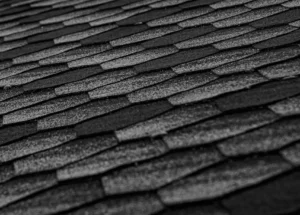Metal roofs are prized for their exceptional durability, energy-saving benefits, and contemporary design, making them a top choice for many homeowners. They protect against bad weather for many years, save energy, and add to the aesthetic appeal of a house. But one question has always been there: Do metal roofs interfere with cell phone and Wi-Fi signals? Many fear problems with connectivity, but how much of this fear is justified? In this blog, we’re going to let the cat out of the bag regarding the truth about metal roofs and signal reception, debunk the most common myths, and hand you some effective ways of ensuring seamless connectivity within your home.
Metal Roofs Impact on Cell Service
A very common myth is the one stating that metal roofs exceedingly weaken cell signals and continue to keep people disconnected. Actually, this is not utterly true. Metal roofs actually do not block the signal outright but can reflect or absorb these radio waves. The extent of disruption will depend on variables such as roof design and quality of installation, among so many other environmental factors.
An example of this is an apartment right next to a cell phone tower would have little, if any interference, where a mile or two away there would be minor disruptions. On that note, it has also been documented that commercial property that have metal roofs experience very minimal signal problems, which should hint the idea that residential should not have either.
Other factors bear on signal quality more importantly, though. Distance from cell towers, structures in the vicinity like trees and buildings, even the material composition of the walls, such as concrete or brick may be more important in affecting cell reception than the roof itself.
Do Metal Roofs Interfere with Wi-Fi Signals?
Just like Wi-Fi. If your Internet access is through a cable or satellite service, that’s usually unaffected by what material your roof is made from since the signal travels along the cables and not via airwaves to your router.
However, if you use a wireless router, then placement becomes really important. Because metal reflects Wi-Fi, the position of your router can make the difference in the reach of the signal inside the home.
You can place the router near the window or higher to minimize interference. In the majority of the cases, correct positioning resolves any signal problem, and you will be online with no problems, though having a metal roof.
Why Do Signals Struggle with Metal Surfaces?
Electromagnetic interference is the disturbance of the electrical signals because of interferences from outside electromagnetic fields. These may be due to quite a number of sources, for e.g., electronic devices, power lines, or even natural causes such as lightning.
Devices most affected and using radio waves to function would include cellular phones whose work would be disrupted, causing dropped calls, slow internet speeds, and generally bad connectivity. The signals, while traveling between cell towers and mobile devices, can degrade because of the electromagnetic “noise” created by multiple devices operating simultaneously. This noisy environment interferes with the clarity and strength of transmitted signals.
Metal roofs being conductive, increase the impact of EMI. Imagine a metal roof as a shield that reflects and absorbs radio waves, hence making them reflect away from their intended route. This reflected wave weakens reception inside homes or any buildings with a metal roof and makes it hard for devices to hold a clear connection. Additionally, metal roofs amplify electromagnetic frequencies inside the home due to their unique properties, which can make these disruptions worse.
However, sometimes the blame might not solely be on the roof. Other culprits of signal loss could be:
- Distance from cell towers: the farther away you are, the weaker your signal becomes.
- Natural and Structural Obstructions: Buildings, trees, hills, and even interior walls weaken the signal.
- Other construction materials: Concrete, bricks, and insulation-based materials are also responsible for signal loss.
How Much Percent Signal Loss Can You Expect?
Quantifying the signal loss due to a metal roof is tricky since it depends on the environmental and structural conditions. It is estimated that a metal roof can reduce the strength of a signal by some 10% to 20%. In practice, however, this loss is usually hardly noticeable.
Most people have also reported no difference in reception after installing a metal roof. This is primarily because problems arise where there are a couple of factors blocking these signals, such as distance from cell towers and thick walls. Overall, a well-installed metal roof will most likely not be the primary contributor to poor connectivity.
Common Myths About Metal Roofs and Cell Service
One of the most persistent metal roofing myths is that they completely block cell signals. This probably originates from the fact that metal is a conductive material, and therefore many people would think that it would interfere with the radio waves. While this might sound logical, it is not true.
Metal roofs do not completely block cell signals but can reflect and absorb part of radio waves, which causes minor disruptions in localized areas. To put this into perspective, consider how it is to make a call inside a car. Yes, a vehicle’s metal frame may slightly affect reception, yet calls go through because the signals enter through windows and other openings. Likewise, cell signals don’t go in a line from the sky down; they come from multiple angles into homes despite having metal roofs.
Experts point out that metal roofing is often a minimal factor in cell service compared to other, more important ones: the distance from cell towers, the presence of trees, or other physical barriers. Many people with metal roofs report little to no noticeable difference in their cell reception, which underlines the fact that the material of the roof is rarely the primary culprit.
Comparing Roofing Materials: Metal vs. Other Options
While metal roofs bear much of the blame for possibly interfering with signals, other roofing materials can present similar or worse effects. Concrete roofs, for instance, have a reputation for being blockbusters when it comes to letting signals through. Thick concrete may become more obstructive than metal in areas far from cell towers.
Wood roofs, while not as dense as metal or concrete, can still reduce signal strength if they are thick or in layers. Tile roofs are variable depending on the tile type and how they are laid. Asphalt shingles tend to cause minimal disruption but can still contribute to weak signals in certain conditions.
Therefore, metal roofs are not uniquely problematic but one of many roofing materials that could affect signal strength. The key is how to understand the ways of mitigating potential issues, whatever the roofing material.
How to Boost Cell Signal with a Metal Roof
The following are ways you may want to improve connectivity if your signals turn out weaker after the installation of a metal roof:
- Use a Cell Phone Signal Booster: A cell signal booster is a perfect solution to improve connectivity. It has an external antenna that catches the existing signal, an amplifier that boosts it, and internal antennas that spread the signal throughout your home for the best cell reception.
- Install a Femtocell: A femtocell connects to your broadband internet and then creates a mini cell tower inside. It is very helpful where the signal strength is not good, as it reserves a network for your mobile devices.
- Optimize Router Placement: Place your router in an optimal place, especially if you rely on Wi-Fi calling or streaming. Keep the router away from major metal objects and place it near windows or higher locations.
- Directional Antennas: Consider installing a directional antenna that faces toward the nearest cell tower. This type of antenna focuses on capturing the strongest possible signal, improving overall reception.
- Minimize interference: Stay away from areas that are in frequent use. This easy fix will improve your signal quality in the home.
Conclusion
While metal roofs do reflect radio waves, which can potentially impact cell phone and Wi-Fi signals, most of the time, this effect is not that bad. Many homeowners ask themselves whether they should not choose a metal roof just because it may cause some signal problems. Well, it depends on your priorities.
If durability, energy efficiency, and long-term savings are important to you, then a metal roofing is a great investment. Most signal issues can be easily reduced with the solutions mentioned earlier in this blog, so you won’t have to sacrifice connectivity by overlooking the benefits of a metal roof.
Most problems are actually caused by the combination of many issues like the distance from cell towers, other structural blocks, among others. With this understanding of how these contributing factors interact, some practical means through which this knowledge can be utilized for boosting your signals with the aid of a booster and optimally located router will be sure that with metal roofs, connectivity will not go for a toss.
FAQs
Do metal roofs block cell phone signals completely?
No, cell phone signals are not completely blocked by metal roofs. Though metal can reflect and absorb radio waves, often the impact on signal quality is not that bad. Many buildings that have metal roofs-for instance, restaurants and shopping malls-have decent reception. The real signal strength depends more upon factors such as distance away from cell towers and other obstructive factors rather than the type of roofing material used.
Why do metal roofs in homes cause poor cell reception?
Poor cell reception in homes having metal roofs may range from EMI from within or around neighboring electronic apparatus to a distance from cellphone towers, trees, and other barriers like skyscrapers. The metal roofs amplify the existing disruptions as they reflect signals away rather than on the path through which they were supposed to meet but are themselves just about among many other contributors regarding these issues.
How much signal loss is possible with a metal roof?
Other real effects that a metal roof does to signal loss depend on, but are not limited to, the following: actual design of the roof itself, quality of installation by workers, and external conditions around it. Estimates have been put as high as a loss in signal strength of 10 to 20%, but practically speaking, this is pretty lower than some other factors responsible for affecting reception, such as house distance from cell towers, or extra building materials within the building.
What is good for improving cell signals in houses with metal roofs?
For improving cell reception in homes with metal roofs, try a cell phone signal booster or femtocell. They capture existing signals and amplify them inside to raise the level of reception. Also, position your router correctly for Wi-Fi calling and reduce interference with other electronic devices that may block connectivity.







